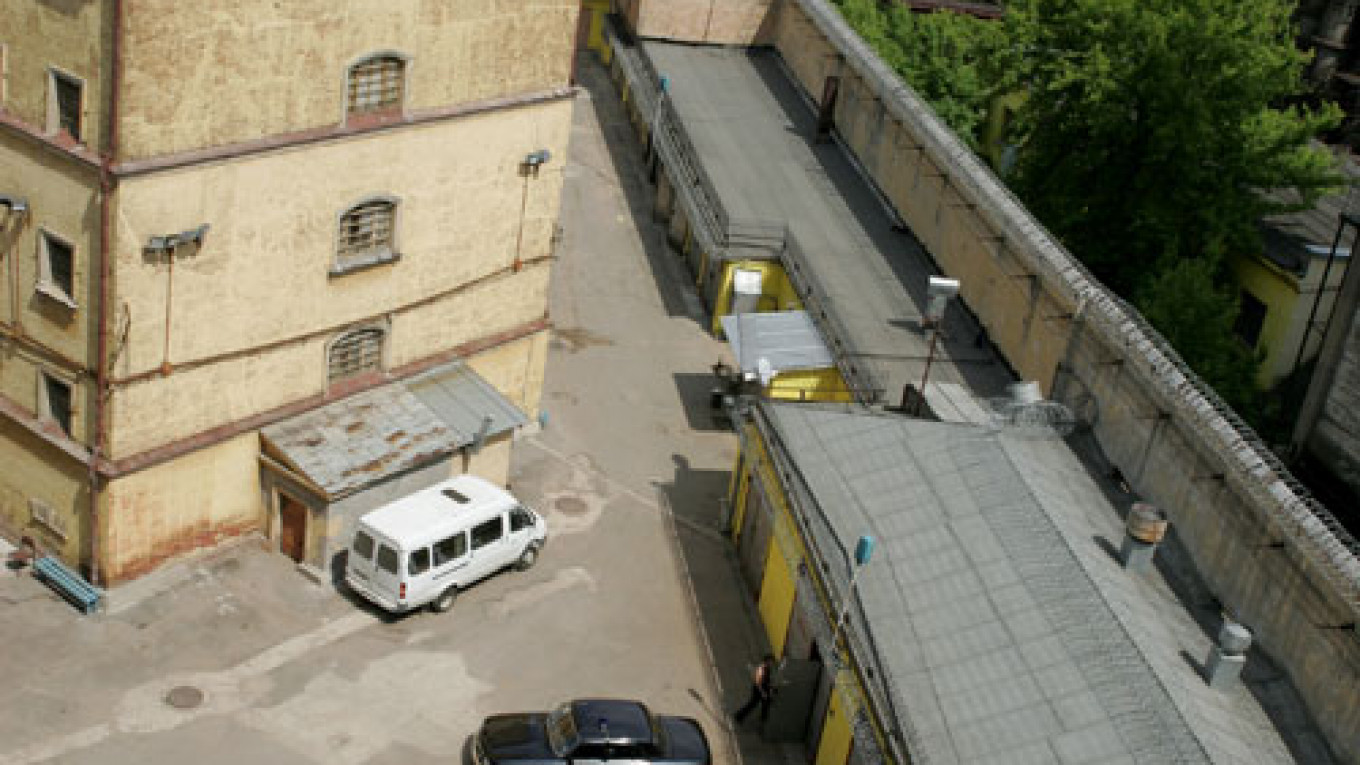A Kremlin-drafted bill allowing the release of suspects with grave illnesses from pretrial detention was forwarded to the State Duma on Monday.
But the bill, an apparent response to several high-profile deaths, failed to impress rights defenders, who pointed out that it does not make the release for ill detainees mandatory.
The current legislature obliges judges to consider the health of suspects when deciding whether to sanction their arrest, but it does not specify the illnesses that allow suspects to qualify for release, the Kremlin's web site said Monday.
The new bill aims to amend the situation by listing out the illnesses, but it only “allows the possibility” of release, stopping short of guaranteeing it, the Kremlin said.
While the bill's vague wording would allow judges to keep suspects in jail, said lawyer Ruslan Koblev, there is hope that courts would free defendants out of fear of being punished for failing to obey presidential orders.
"Society knows that the changes are linked to the high-profile cases," Koblev said in a reference to Hermitage Capital lawyer Sergei Magnitsky and businesswoman Vera Trifonova, both of whom died of health problems after months in pretrial detention. Medvedev ordered investigations into both deaths. No one has been charged.
Judges are often reluctant to release suspects because they don't want to be accused of accepting bribes, said Valery Borshchyov, a rights activist with the Moscow Helsinki Group.
He said this fear often prompted judges to "do the bidding of the investigators, whose task is to wear down the suspect" by keeping him or her in detention.
Judges also are keen to sanction arrests because many are former investigators or prosecutors who have "a repressive mentality," Koblev said.
Magnitsky's lawyer, Dmitry Kharitonov, said he feared that the bill would not increase the number of released suspects. He cited the fate of a similar initiative backed by Medvedev that obliges judges to release suspects in cases involving economic crimes. The new law has been used selectively since being enacted in April.
Illnesses, many of them terminal, led to the deaths of 276 suspects in pretrial detention in 2008 and 233 in 2009, the Kremlin said.
Magnitsky, 37, died of heart failure in November after spending almost a year in Moscow jails awaiting trial on tax charges.
Magnitsky's supporters have criticized the charges against him as fabricated and said he was intentionally denied qualified medical help.
Trifonova, 53, who had severe diabetes and a number of other ailments, died of heart failure in a Moscow facility in April under similar circumstances.
Former Yukos vice president Vasily Aleksanyan, half-blind and diagnosed with cancer and AIDS, spent two years in detention until the authorities finally agreed to release him on bail of 50 million rubles ($1.6 million). A court in June dropped all charges against him following the expiration of their statute of limitations a month earlier.
A Message from The Moscow Times:
Dear readers,
We are facing unprecedented challenges. Russia's Prosecutor General's Office has designated The Moscow Times as an "undesirable" organization, criminalizing our work and putting our staff at risk of prosecution. This follows our earlier unjust labeling as a "foreign agent."
These actions are direct attempts to silence independent journalism in Russia. The authorities claim our work "discredits the decisions of the Russian leadership." We see things differently: we strive to provide accurate, unbiased reporting on Russia.
We, the journalists of The Moscow Times, refuse to be silenced. But to continue our work, we need your help.
Your support, no matter how small, makes a world of difference. If you can, please support us monthly starting from just $2. It's quick to set up, and every contribution makes a significant impact.
By supporting The Moscow Times, you're defending open, independent journalism in the face of repression. Thank you for standing with us.
Remind me later.






